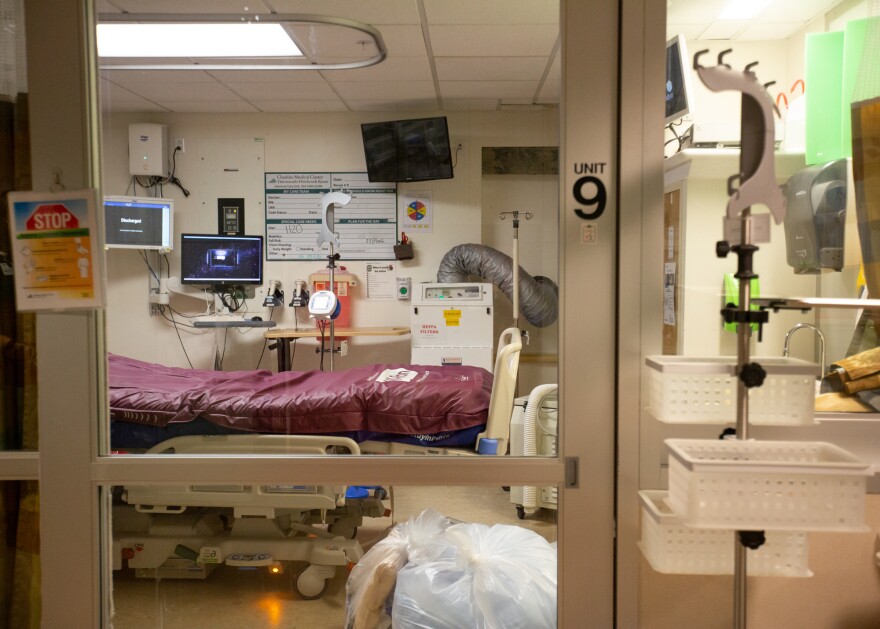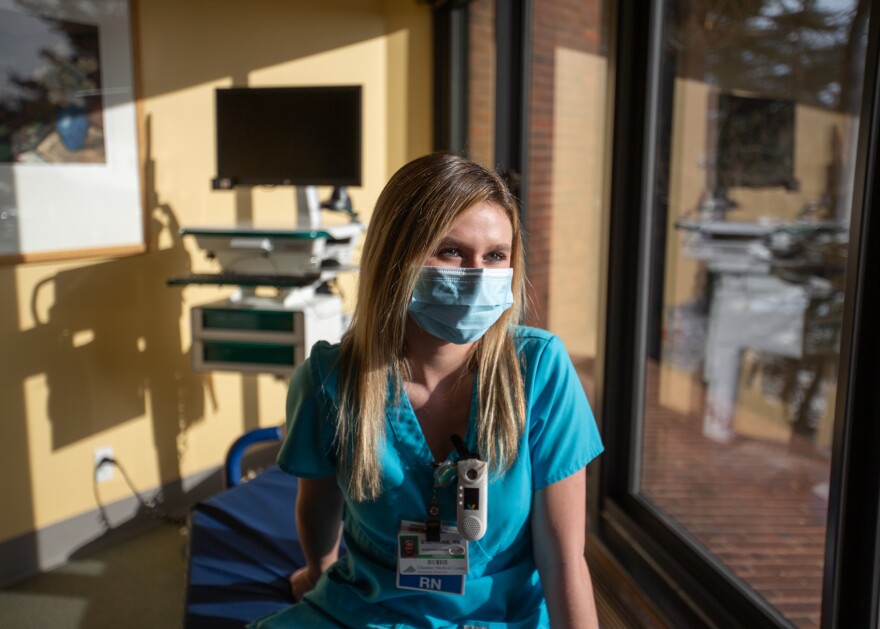Noah Clay, 24, has worked as a nurse in the Intensive Care Unit at Cheshire Medical Center in Keene for fewer than two years. It hasn't been what he expected.
“I don't think any new grad starting in COVID really thought that they were going to see this much death,” Clay said.
Nurses in Clay's generation are entering the field at one of the most tumultuous times in American medicine. Political battles are raging over vaccines as understaffed emergency departments spill into hospital hallways, overwhelmed with high volumes of patients.
As Clay's progressed in his career, he’s learned new technical skills, like how to carefully “prone,” or flip a COVID patient with difficulty breathing from their back to their stomach. But he's also facing the emotional impact of a global pandemic in a hometown hospital.
He’s learned how to be the person facilitating a final conversation between families and their loved one dying from the virus. It’s work he’s proud to do, but it’s not easy. On Wednesday of last week, every single patient in the hospital’s ICU was suffering from the virus.
“We’ll hold their hands as the time comes,” Clay said. “It's kind of hard to just kind of keep going after that. It’s tough.”

Because of those difficult conditions, Cheshire Medical Center has been thinking of new ways to support young staff, and senior staff are looking into a peer mentorship program.
Losing young nurses during the pandemic has been a special concern for health care facilities across the state, according to Gene Harkless, the nursing department chair at the University of New Hampshire.
The state’s nursing workforce is aging. The pandemic pushed more nurses to retire early. Keeping young people in the field will be key to maintaining a stable workforce down the road, she said.
“COVID has just amplified what we knew were challenges to the nursing workforce,” Harkless said.
Since 2015, the university has increased its class size, in response to the long-standing nursing shortage that predated the pandemic. The sophomore class of 2022 will be 100 students, up from 60.
But Harkless said growing the class further is unlikely, due to two issues: staffing and facility availability.
It’s hard for Harkless to find facilities willing to take on more students for hands-on training programs, as their staff members have limited free time to work with students, especially because many are new grads themselves.
And as employers of nurses battle their own staffing shortages, it’s hard to convince facilities to let her regularly borrow staff to teach courses. Other adjunct nurses have been switched to travel nursing and are not available to teach locally.
But Harkless says UNH has adjusted its nursing curriculum to better prepare students for the jobs awaiting them.
“There’s not a course that has not been informed by COVID,” Harkless said. For example, she says, the school has re-designed a long-standing course on death and dying.

Stephanie Alden, 22, said her nursing education was interrupted by the pandemic. Much of her coursework shifted online. She’s a new hire at Cheshire Medical Center and has been at the hospital for six months.
She spends her days working on the hospital's medical-surgical unit, on a floor that mostly treats COVID patients. She generally cares for around five at a time, and she said she feels supported by her colleagues and managers.
But working in the COVID unit hasn’t turned her away from the profession, it’s solidified her commitment to it.
“What we have right now is …people who need us,” Alden said.
As she looks ahead, she’s excited by the possibilities.
“I definitely want to continue to be a nurse for the long run,” Alden admitted.








